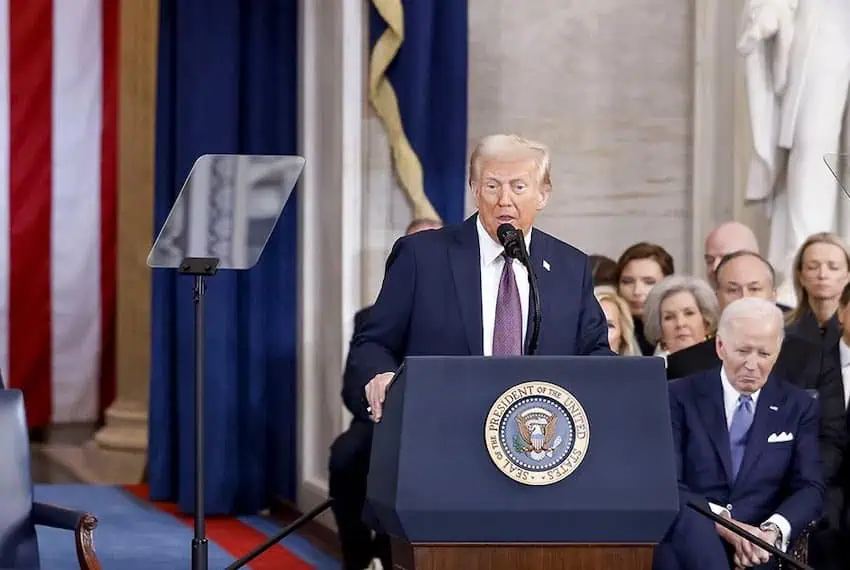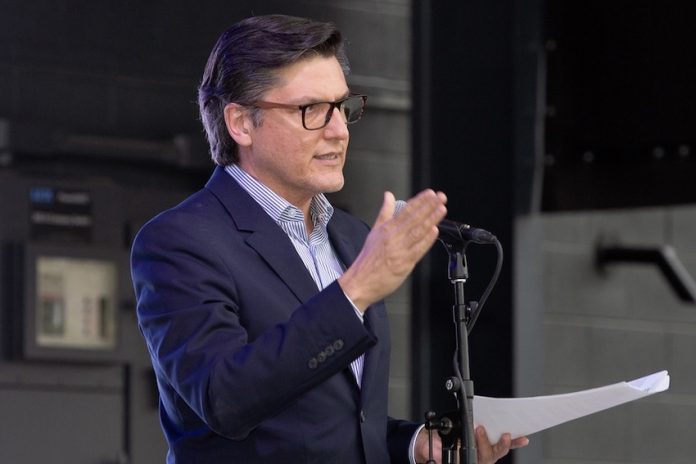I was recently asked by two large companies with manufacturing operations in Mexico whether I thought that Mexico would be the victim of the United States’ “beggar thy neighbor” protectionism.
Everyone seems to be playing a game of “will he, or won’t he,” which plays perfectly into a strategy that seeks to inject uncertainty into the trade relationship. Keeping everyone guessing increases the cost of doing business with Mexico (and Canada and China, etc.), which is what the current U.S. president wants.

According to the Wall Street Journal, “some companies, including networking-equipment company Cisco Systems, fashion company Tapestry and clog and sandal company Crocs, have included the impact of tariffs in their latest guidance. Others, including Mexican-inspired restaurant company Chipotle Mexican Grill, consumer-products maker Clorox and cereal maker WK Kellogg have excluded it.”
My advice is to ignore the tariffs. If they do come to pass, the market will be shocked out of its complacency and will correct on three fronts.
First, the peso will devalue, thereby negating much of the impact of the increased costs.
Second, the stock market will send a signal that it never expected the government to shoot American competitiveness in the foot.
Third, the move will immediately impact inflationary expectations (which are already at their highest level since the pandemic), thereby making the cost of borrowing more expensive. That means higher costs for mortgages and higher costs for the federal government to service its gargantuan debt. Faced with this reality, it is unlikely that tariffs, if imposed, will last.
In terms of actual economic impact on Mexican-based manufacturers, companies will have part of their cost absorbed by devaluation and the rest will be borne by their clients and, ultimately, the consumer. When there is full employment, companies have pricing power, which the current crop of CEOs remembers well, having raised prices during the supply chain crisis of the pandemic. Even companies that weren’t affected took advantage of the opportunity to both make their wares more expensive and to impose “shrinkflation” on their customers (i.e. you now get 8 units for the price of 10).
Protectionism makes everyone worse off, particularly in a trade relationship like that between Mexico and the United States. The two countries make stuff together, such that for every dollar the US imports from Mexico, fully 40 cents is American-made content (the figure for China is only 4 pennies).
But a strange fetish for tariffs has captured the imagination of the man Americans elected to lead them. Ignoring the lessons of history, especially the Smoot-Hawley tariffs that plunged the U.S. into the Depression in the 1930s, President Trump thinks that Americans can somehow benefit from everything being more expensive and scarcer.
Reality will force the system to self-correct. In the meantime, the best advice is the old British admonition to “keep calm and carry on.”
Agustín Barrios Gómez is a founding partner of International Capital Partners, a former Mexican Congressman, and a member of the Mexican Council on Foreign Relations (COMEXI).
